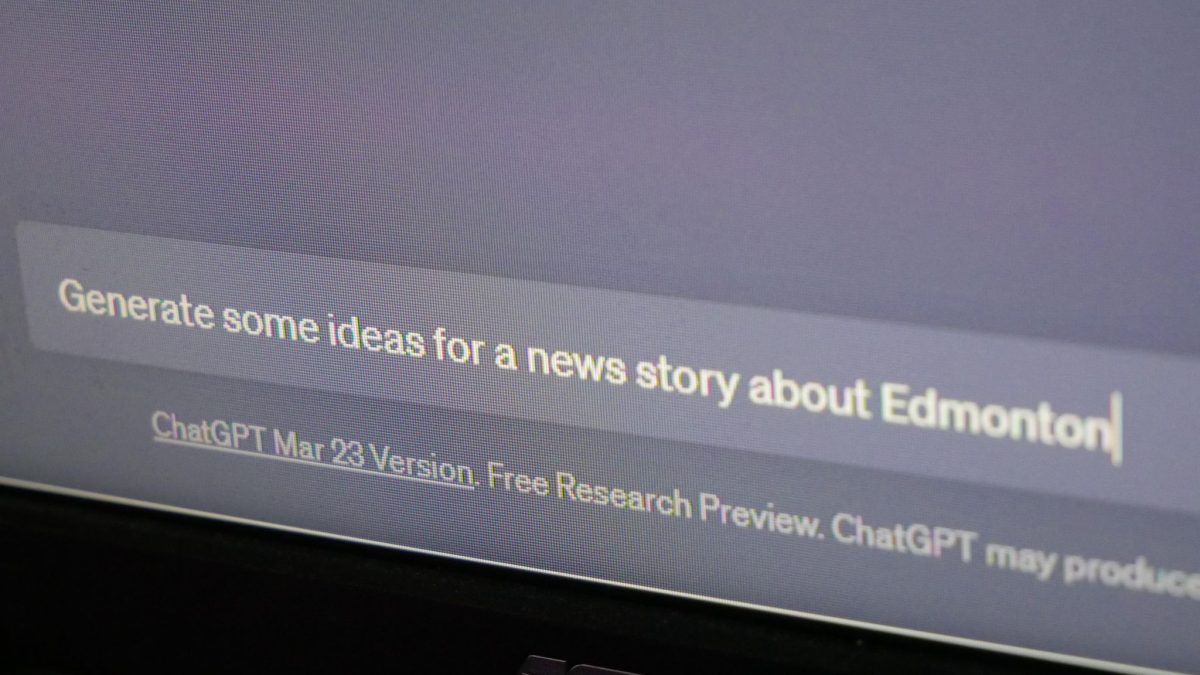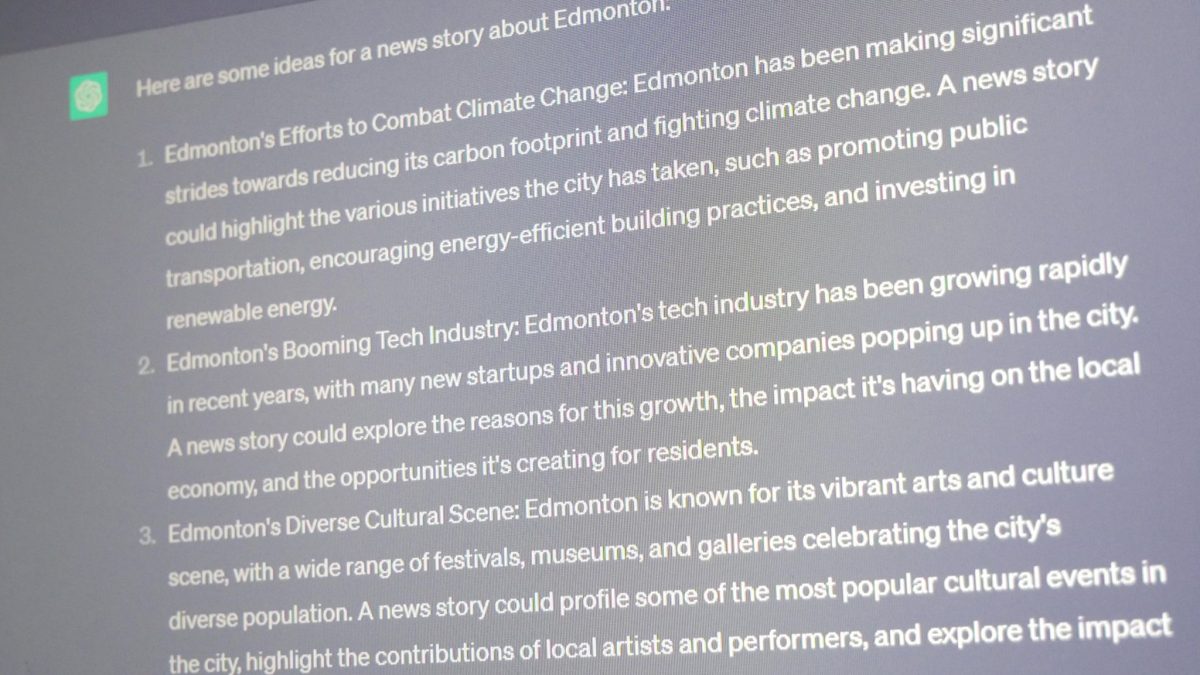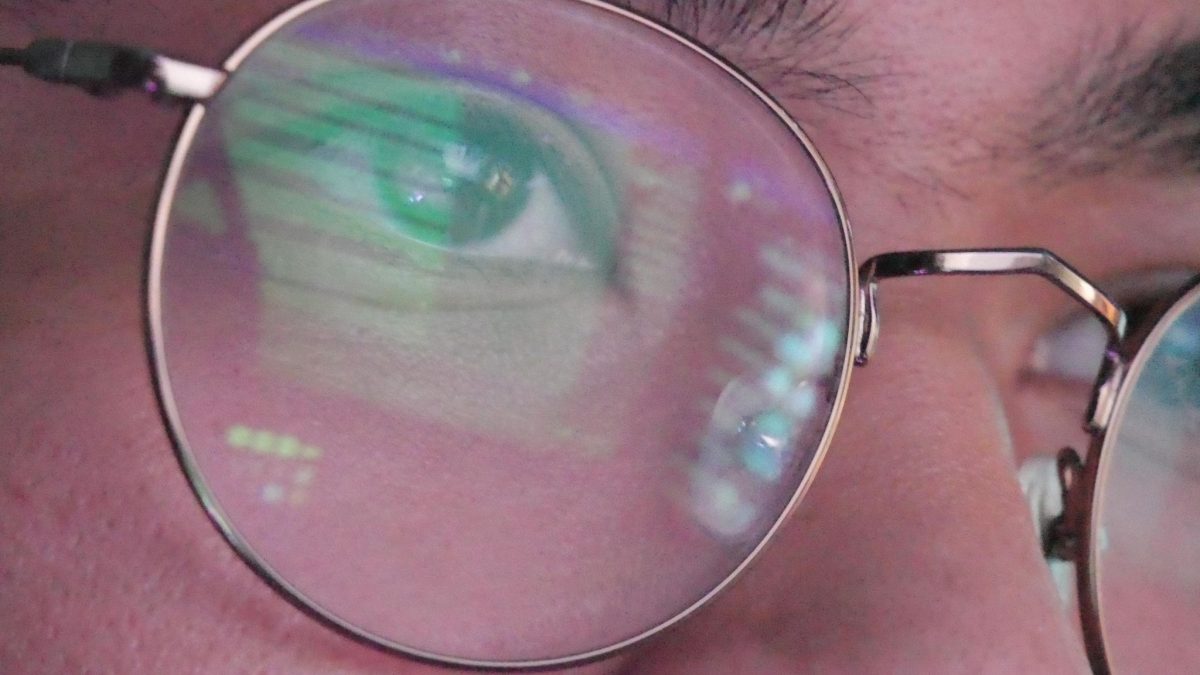A double-edged sword, by definition, is a sword with two edges. But figuratively, it’s more well-known as something with both good and bad parts, and that’s precisely what artificial intelligence is.
The growth of artificial intelligence in the last year is a technological marvel. AI allows people to generate ideas, essays, artwork and many other things by submitting text prompts.
Yet those in journalism can see how AI can affect the industry.

“It is a double-edged sword. You know, it can be very helpful. But I think, like any new technology, it needs to be used with caution,” said Amy St. Amand, NAIT Nugget Editor-In-Chief.
Amy is the Editor-In-Chief of the NAIT Nugget, the student newspaper at NAIT. She manages a group of editors and contributors as they write the news about their campus.
The recent growth of AI has made Amy change how she edits and proofreads articles from students.
“It’s definitely something that I’m more aware of just in terms of, you know, recognizing the authorial voice in students, looking for things that sound a little bit different than their normal writing, even just like, you know, the way people submit things or the formatting. I’m now kind of thinking more about did they actually write this?”
However, even with these negatives, Amy has found a use for AI in certain situations.
“I’ve used it to proofread. I’ve used it to ask questions about Canadian press style when I didn’t have my book with me, and I went and verified it afterwards to make sure it was right.”
But for the Nugget, Amy always strives to get new and engaging content for their readers, and AI may be the key to helping her achieve that.
“We are always looking for new ways to connect to students or new things that students care about. So I think it could be a really helpful tool in that sense of just idea generation and coming up with articles that maybe we haven’t done before.”

Artificial intelligence is here to stay. There’s no question about that. However, even as AI evolves and grows, it won’t replace the humanity people inject into journalism.
“I think that there could be a place for AI in journalism, but I think what makes journalism so important is the realness and authenticity of the stories you’re telling,” said Alleah Boisvert, NAIT Nugget Senior Editor.
Human emotion is as complex as the coding required to create AI software like ChatGPT. AI could write emotionally-driven news stories, but their stories won’t have that level of nuance and complexity as if a human were to write them.

“Empathy is something that I don’t think AI is quite there yet in replicating. So I think that is something that journalists should be really aware of is capturing that empathy in your storytelling is something that won’t be able to be replicated by artificial intelligence at this point anyway,” said Boisvert.
St. Amand adds, “AI will never be able to replicate the quote of someone whose significant other passed away from police violence. AI will never be able to replicate how someone will respond when you confront them on their wrongdoings. AI will never replicate how a student feels when they win an award after coming here from another country.”
The inclusion of AI in journalism is an inevitable step in our industry. But one thing that will always remain the same in journalism is that no machine can capture the human angle more than humans.

